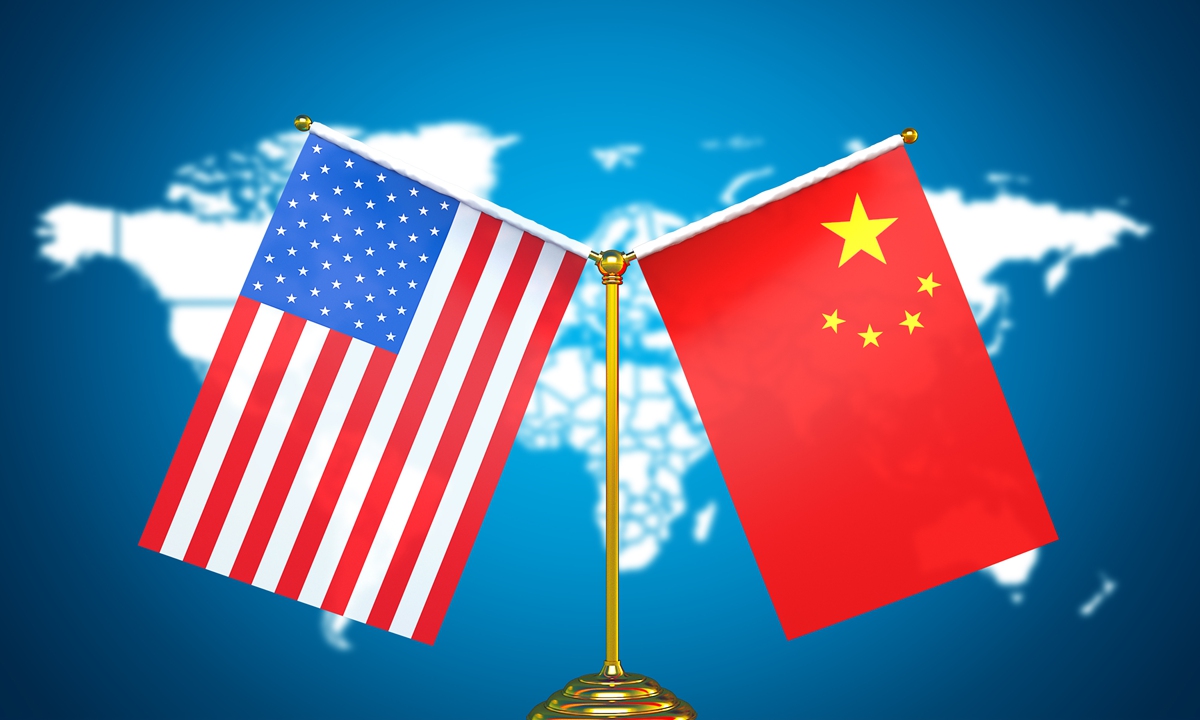US extension of tariff exclusions renews calls for lifting duties on Chinese goods that ‘hurt all’
Move shows goodwill, but there's no major policy shift on the duties: experts

China US Photo:VCG
The office of the US Trade Representative (USTR) will extend tariff exclusions on more than 350 Chinese products and more than 70 COVID-19-related categories through May 31, 2024, in what Chinese experts call increasing evidence that the US should remove the tariffs, which have hurt all parties.
While the move can be considered a small goodwill gesture amid increased interactions between Chinese and US officials, it also shows the reluctance and unwillingness of the US to remove the tariffs despite the mounting damage they have caused for US businesses and consumers, experts noted.
In a press release on Tuesday (US time), the office of the USTR announced the further extension through May 31, 2024, of the reinstated and COVID-related exclusions in the China Section 301 Investigation. The exclusions involved 352 Chinese import and 77 COVID-related exclusions. The exclusions were due to expire on December 31.
"The extension will enable the orderly review of the exclusions consistent with statutory factors and objectives to identify in which cases additional time would enable shifts in sourcing to the United States or third countries.
"The extension will also facilitate the alignment of further decisions on these exclusions with the ongoing four-year review," the USTR said in the press release, which also announced the opening of a docket for public comments on existing exclusions on January 22, 2024.
Chinese experts said that the tariff exclusions are based on the need of the US to continue importing relevant products from China without adding extra costs for US companies, rather than a major shift in policy in the multi-year tariff war that former US President Donald Trump started and US President Joe Biden continued.
"This is not a major shift, but it is indeed a very small, technical gesture of goodwill," He Weiwen, senior fellow from the Center for China and Globalization, told the Global Times on Wednesday, noting that the move involves only a very small amount of products that face additional tariffs, and it is also only an extension of tariff exclusions that had already been announced.
As many US businesses continue to feel the impact of these tariffs and continue to apply for exemptions, the US government will also feel increasing pressure to extend the tariff exclusions, according to He.
The US extension came after China on December 22 announced the extension of tariff exemptions for some imported products from the US through July 31, 2024. It also comes as Chinese and US officials have stepped up interactions in recent months to stabilize ties.
However, Washington's move also showed its determination not to remove the tariffs despite calls from not just China but also many US businesses and consumers, according to Chinese experts.
"The US is acting very reluctantly with regard to tariff removals or even just exclusions, even though it knows that it must extend the exclusions for the sake of US businesses and consumers," Bai Ming, a research fellow at the Chinese Academy of International Trade and Economic Cooperation, told the Global Times on Wednesday.
Bai said that the US would continue to engage China in areas where it needs China's cooperation, but it will not shift its strategy of cracking down on China's economy.
"There will be some areas where China-US economic and trade ties will see improvement in 2024, but the overall tone of the US won't change dramatically," Bai said.
Still, the US government is under increasing pressure from domestic businesses and consumers to remove the tariffs. Thousands of companies have filed suits against the US government over the tariffs, arguing the tariffs caused damage to their businesses, media reported.
"Tariffs hurt everybody. That's what economics teaches. Let me say it carefully, it will hurt almost everybody," US Nobel Prize-winning economist Thomas Sargent said in a recent interview with the Global Times, adding that while some individuals may benefit from tariffs, the majority of people will see a negative impact.

